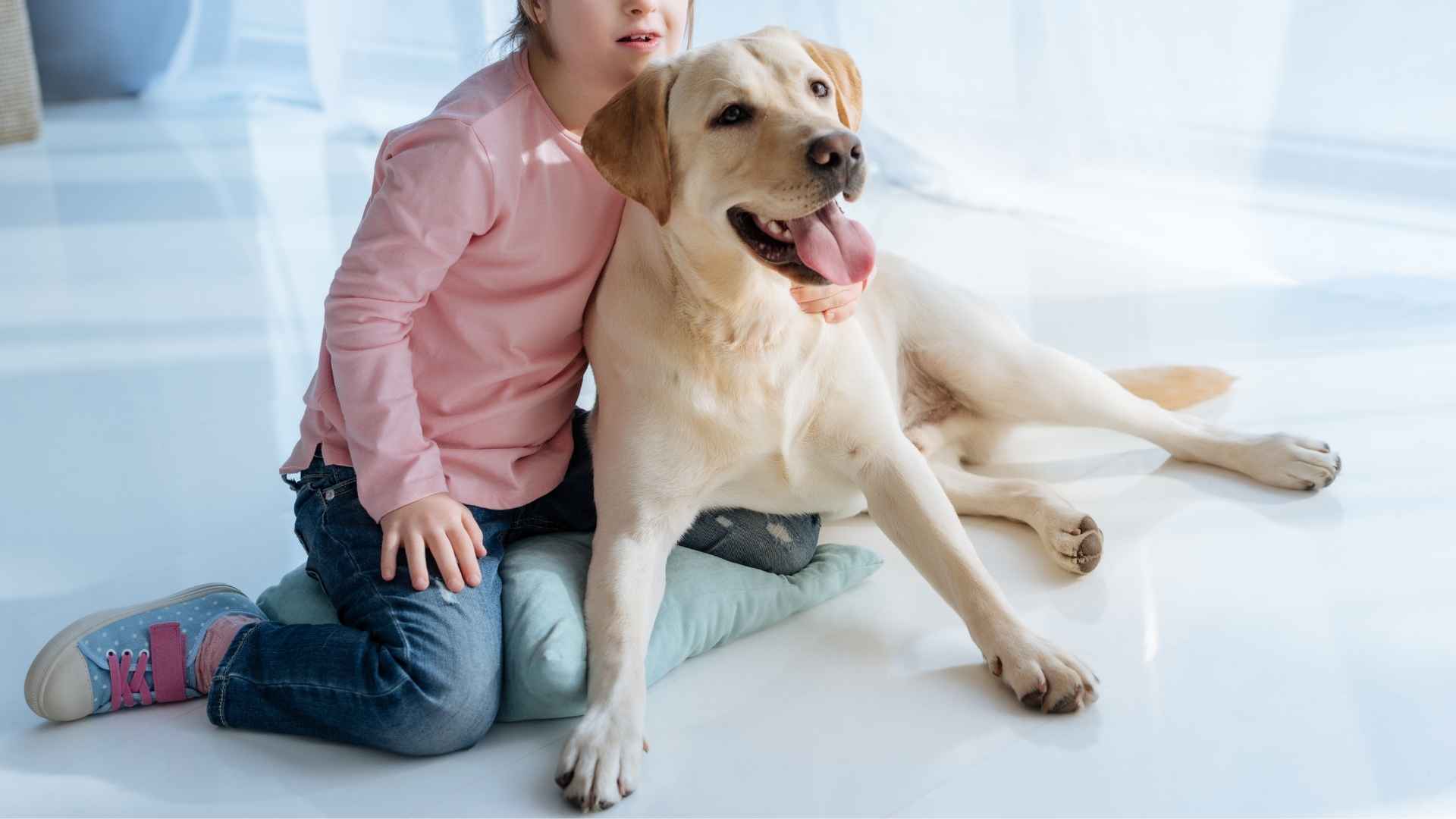Did you know some dogs can sense seizures before they happen? Yep, super-sniffers with superhero skills.
Choosing the right service dog for autism isn’t just about cuteness—it’s about calm, consistency, and cuddles (okay, also cuteness). The right breed can offer life-changing support.
From navigating sensory overload to providing social bridges in awkward moments, these furry sidekicks are more than just pets. They’re emotional anchors in a loud, fast world.
And no, it’s not one-size-fits-all. Some are low-energy nap lovers, while others thrive on routine and tasks. Matching personality and purpose is key.
So whether you’re a parent, partner, or person on the spectrum, you’re in the right place. We’ve sniffed out the top contenders, and trust us—they’re pawsitively amazing.
Let’s find the perfect companion that gets you, supports you, and maybe even steals your snacks. Ready? Let’s go.
7 Best Breeds for Autism Service Dogs
1. Labrador Retriever
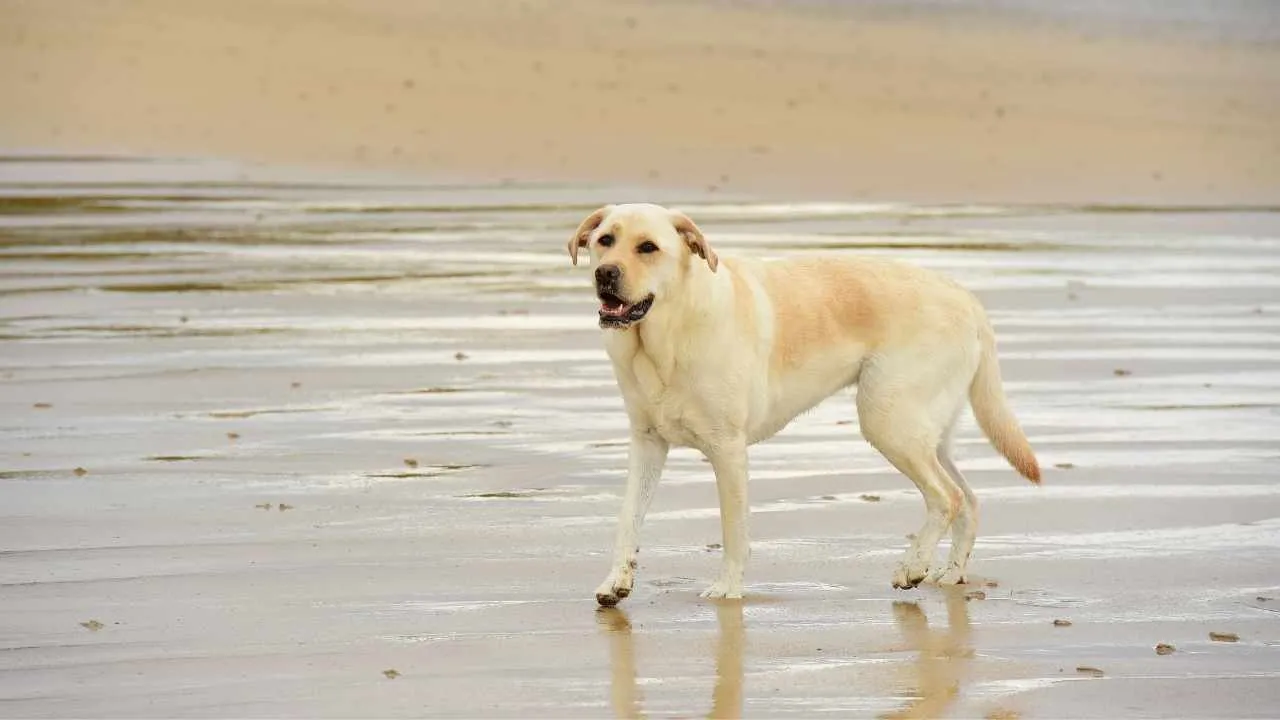
America’s sweetheart with a wagging tail, the Labrador Retriever is more than just a cheerful face. Originally bred for retrieving fishing nets in icy Canadian waters, these pups are now all-star assistance dogs, especially for individuals on the autism spectrum. Their balance of brawn and brains makes them incredibly versatile for therapy and service work.
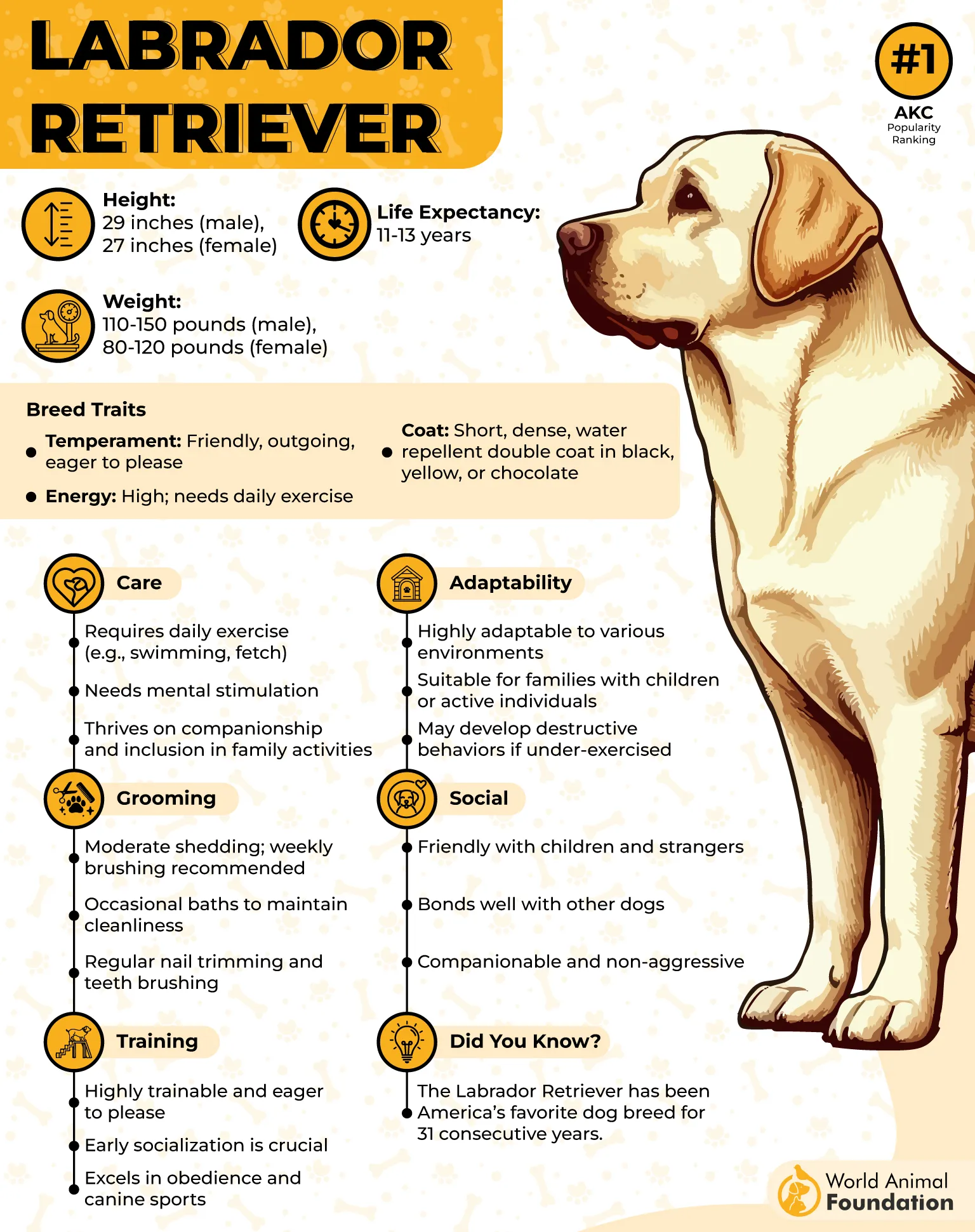
Labs are among the most common breeds used in autism support, and for good reason. With a calm temperament and an eagerness to please, they take to proper training like ducks to water. They’re especially great for performing specific tasks like guiding, comforting, or interrupting repetitive behaviors.
This breed is highly intelligent yet forgiving of beginner mistakes, making them ideal for first-time dog ownership. They thrive under routine and love engaging mentally — puzzle toys and obedience games keep them sharp.
Petplan claims that though they shed excessively, their grooming needs are relatively low-cost. Expect more lint rolling, less trimming.
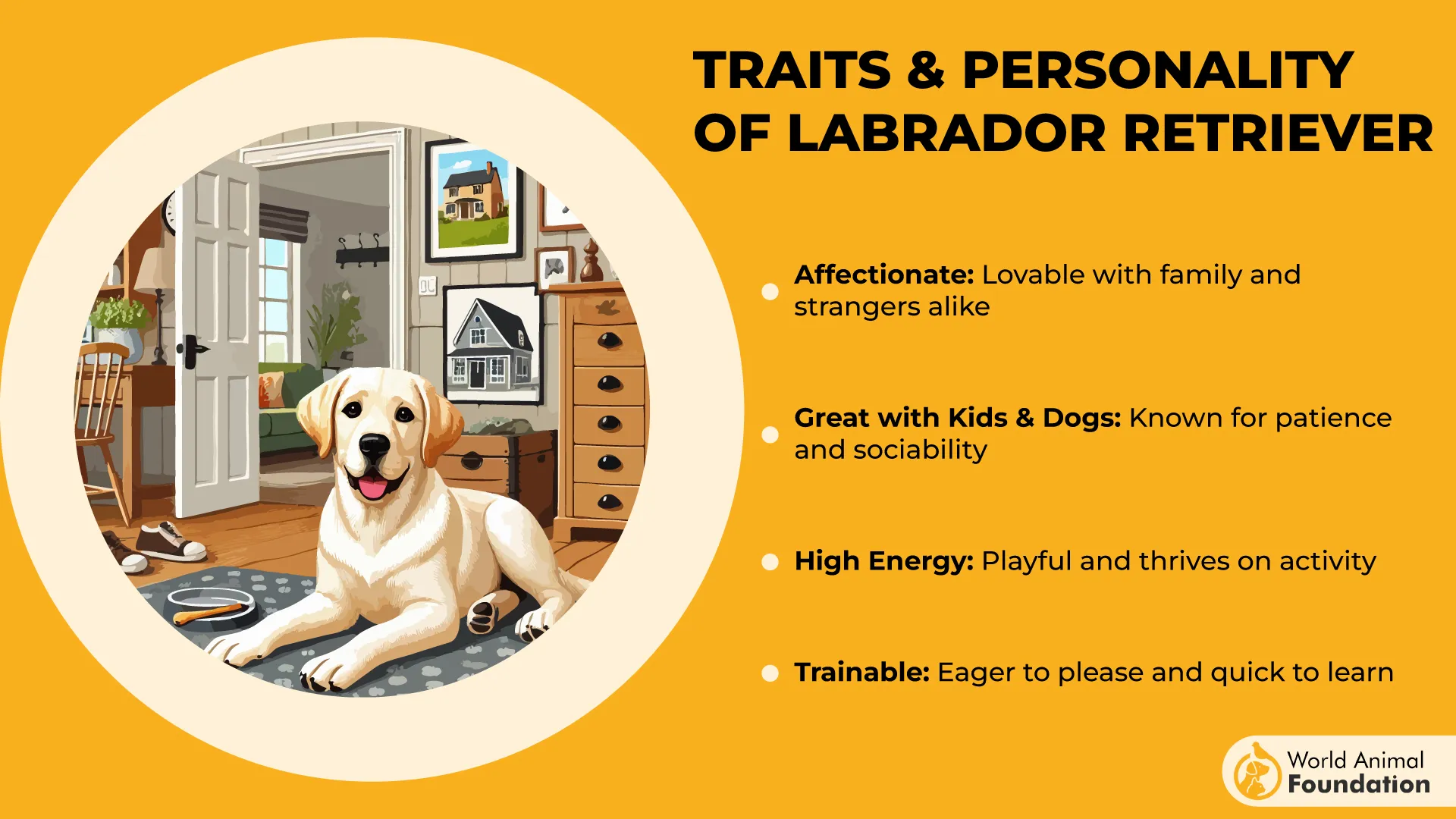
They’re not couch potatoes, though. Labs have a high energy level and benefit from daily walks and play to stay focused and relaxed. A bored Lab is a chewed-shoe Lab.
A fun fact? They’re naturals at reassuring pressure, often leaning gently into their handler during moments of stress. It’s like a warm, weighted blanket with paws.
With their affectionate nature, Labs are not just great companion dogs—they’re often the perfect dog for a child with autism, blending love, loyalty, and life-changing support.
2. Golden Retriever
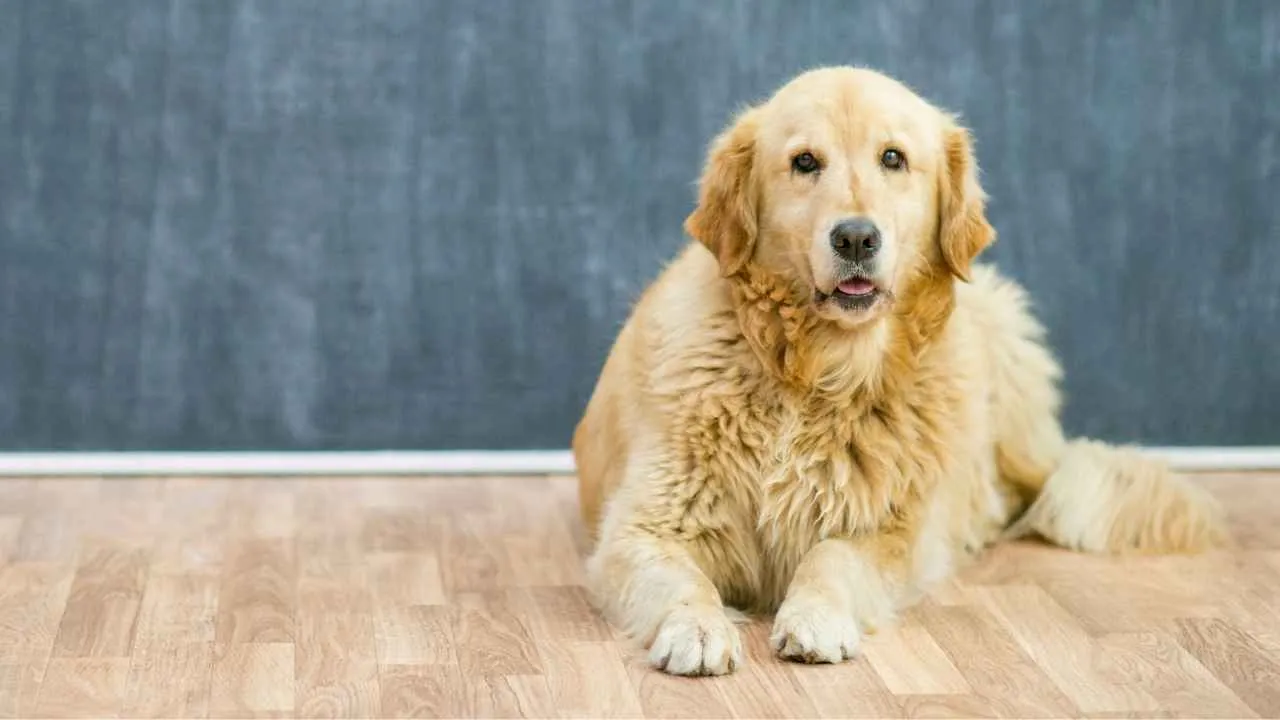
If sunshine had fur, it would be a Golden Retriever. These great family dogs are the gold standard when it comes to emotional support and autism dog companions. Originating from Scotland as hunting retrievers, they’ve traded birds for belly rubs—and they’re not mad about it.
Golden Retrievers are famously gentle, with a mild-mannered nature that makes them naturals for working with a child with autism. Their affectionate nature and soft demeanor offer calming companionship that eases social anxiety and sound sensitivities.

They’re also highly trained for complex tasks, from applying reassuring pressure to blocking unsafe behaviors like self-harm. Their deep emotional intuition lets them read the room—and your heart.
Despite being large-breed dogs, their energy level is moderate and manageable. A walk, a game of fetch, and a good cuddle session are usually enough to keep their tails wagging.
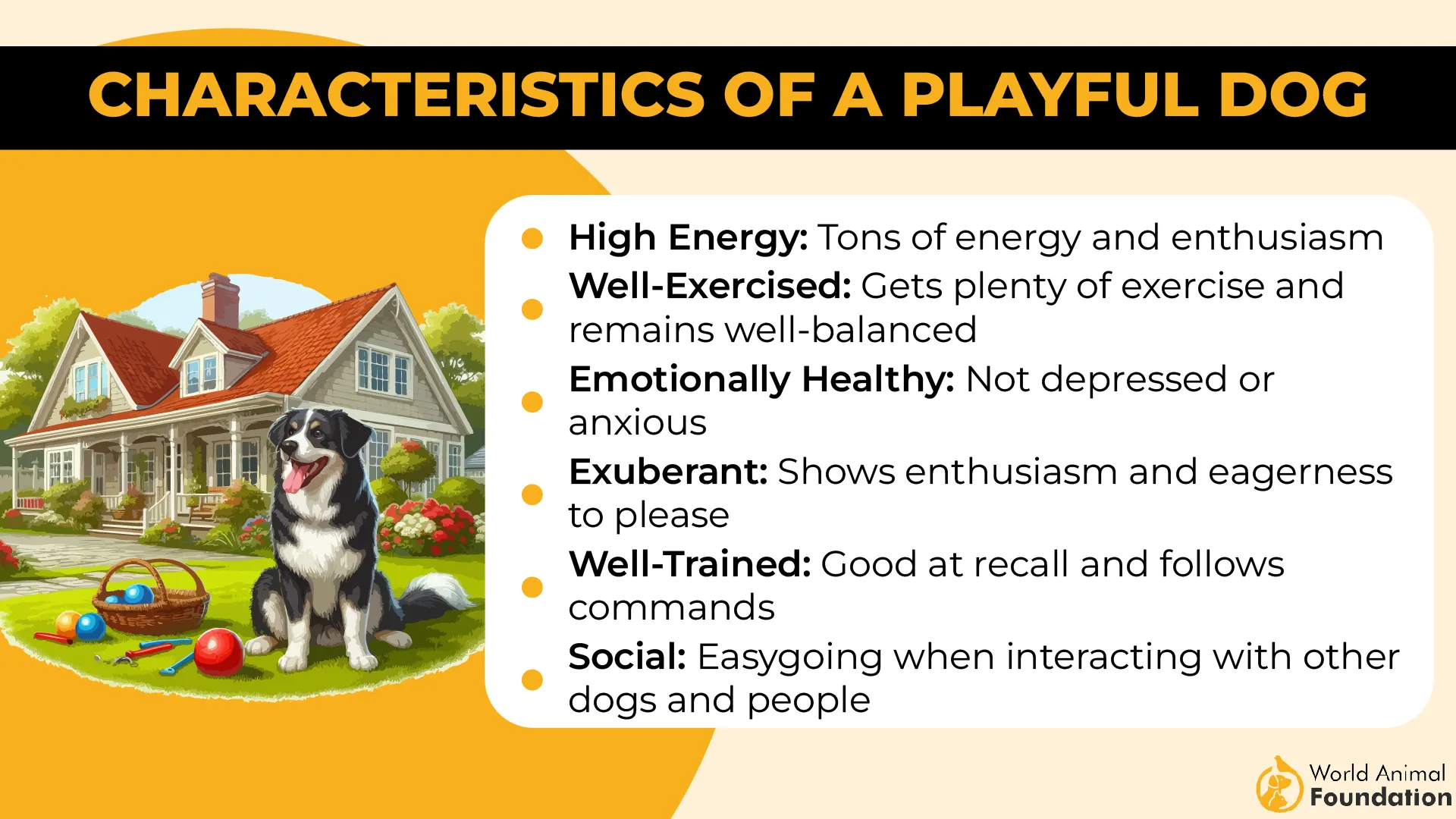
Training is a breeze with Goldens. They’re easy to train and thrive on praise, making even complicated tasks feel like playtime.
They do have grooming needs—expect moderate shedding and regular brushing to keep that glorious coat camera-ready. But they’re worth every fur tumbleweed.
In short? A Golden brings unconditional love, emotional depth, and steady companionship—your loyal companion in every sense of the word.
3. Poodle (Standard)
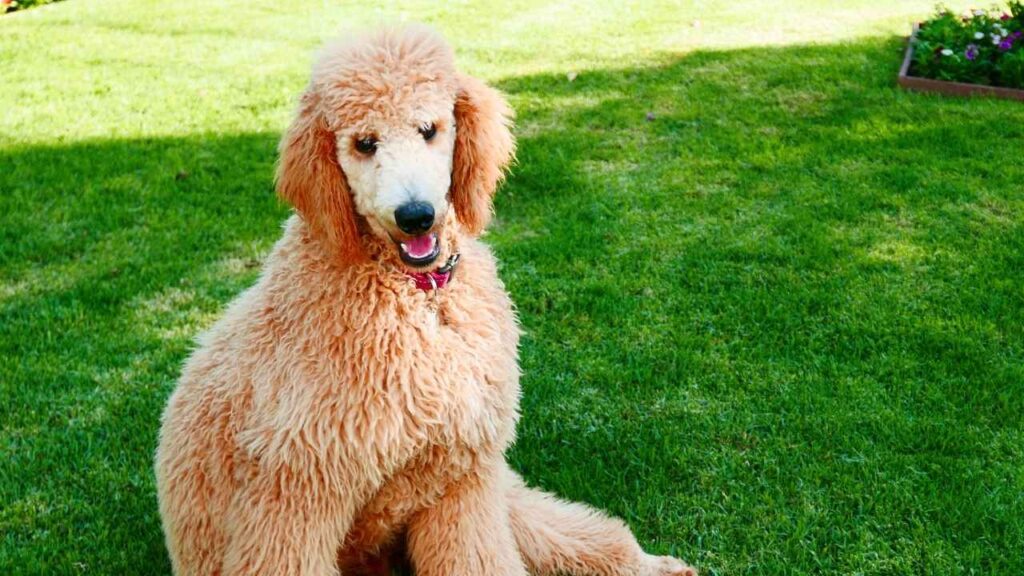
Don’t be fooled by the fancy hairdos—Standard Poodles are brainy, bouncy, and born to assist. Originally bred as water retrievers in Germany, they’re now one of the most allergy-friendly and highly intelligent breeds in the canine world.
This breed stands out among service dogs for people with autism spectrum disorders and some other health problems due to its hypoallergenic coat and laser-sharp focus. Sensitive and intuitive, they excel at providing stability and sensing emotional shifts in their human.
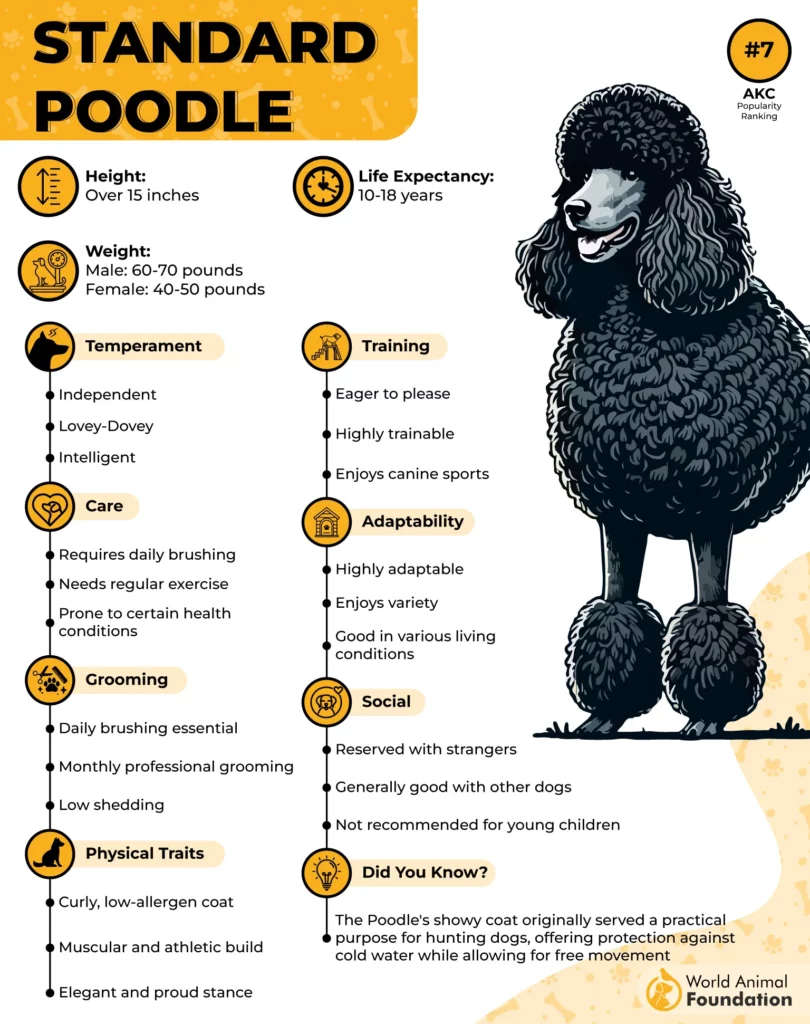
A Standard Poodle doesn’t just follow commands—they anticipate them. Perfect for specific tasks like tactile stimulation or interrupting self-harm behaviors. And their elegance? Just a bonus.
AKC notes that these dogs are energetic and highly trained, so mental stimulation is key. Think scent games, agility training, or learning complicated tasks—they’ll thank you with tail wags and clever tricks.
Their calm temperament in public makes them pros at navigating crowds and noisy environments. No meltdown too messy, no stare too awkward.
Grooming costs are higher than most breeds, but their non-shedding coat is a dream for those with allergies or sensory concerns. Prioritize professional grooming or get comfy with clippers.
Whether offering reassuring pressure or simply sitting pretty, the Standard Poodle is the brainy, beautiful bestie every autistic child could wish for.
4. German Shepherd
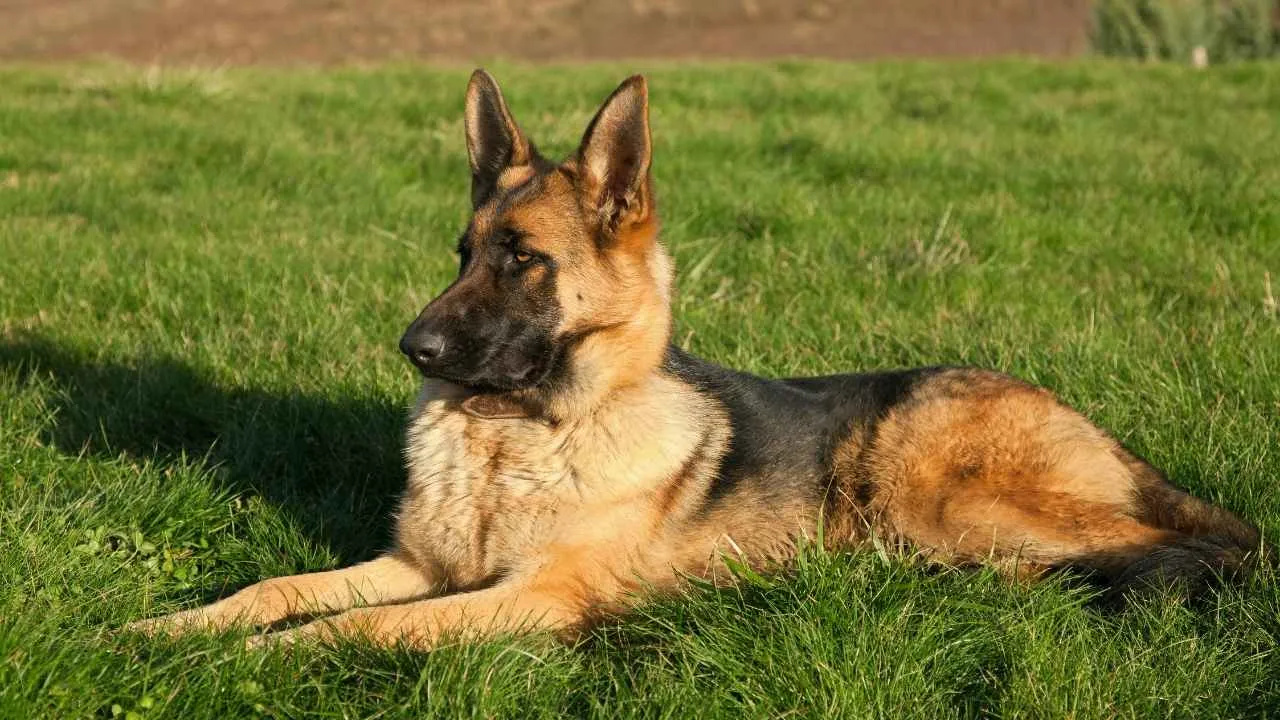
Smart, steadfast, and striking, German Shepherds are the quiet heroes of the assistance dog world. Once herders in the German countryside, they now herd hearts and guard routines like pros.
This therapy dog breed brings structure and dependability to people with autism, thriving on specific tasks and responsibility. They’re often trained for safety-focused roles—think guiding through crowds or tracking a wandering child.
With a calm temperament and keen sense of duty, Shepherds are ideal for those needing routine, structure, and a strong, stabilizing presence. They’re laser-focused, making them one of the most highly trained and loyal companions.

Training a Shepherd requires consistency, but boy, do they love to learn. They crave mental stimulation and challenges that put their brains to work—great news for anyone interested in getting a service dog that thrives on growth.
Their energy level is medium to high; they need daily outlets like brisk walks or obedience drills to stay balanced and mellow.
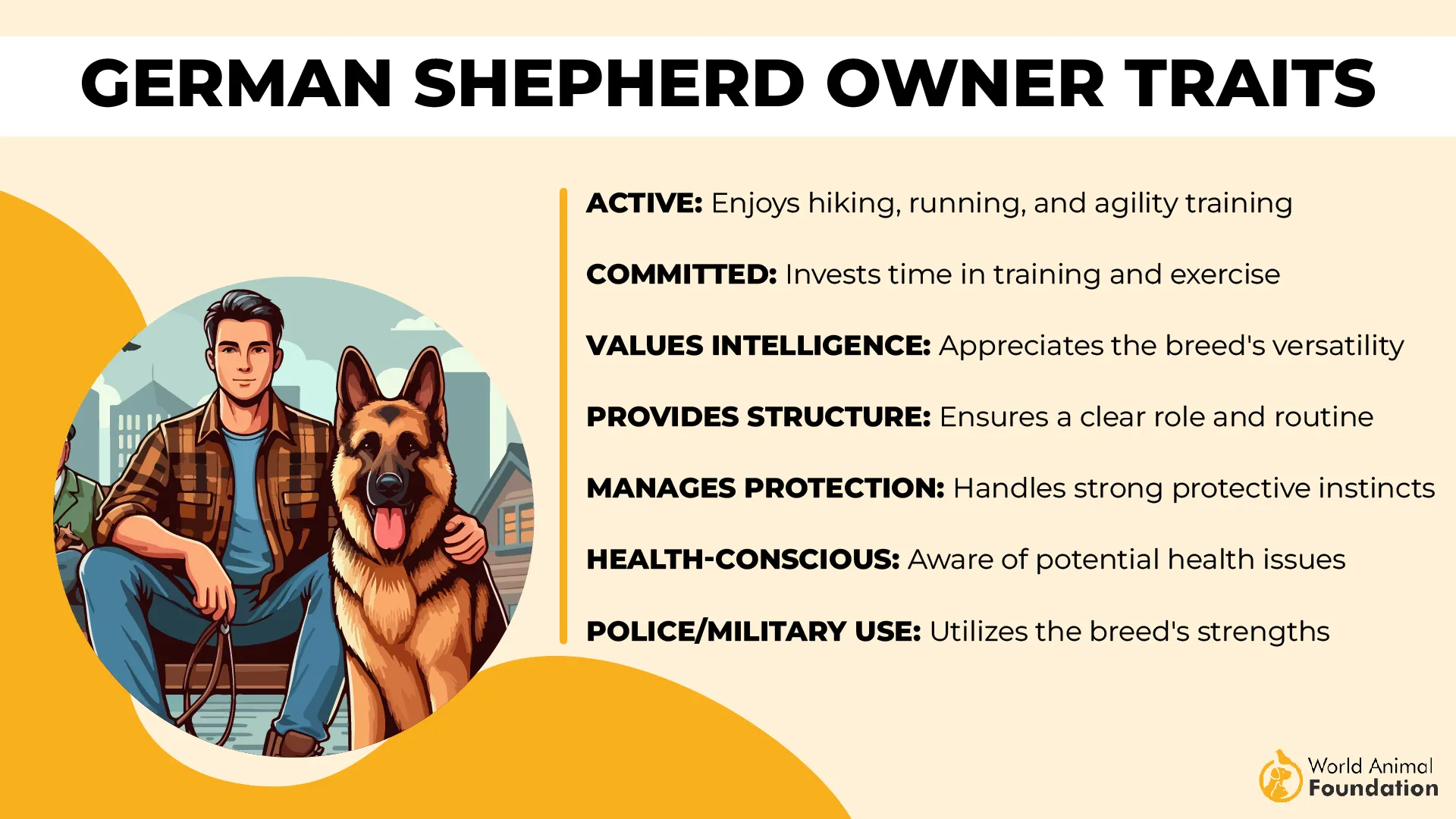
Though not always suited for first-time owners, a well-trained Shepherd becomes an anchor—steady, intuitive, and devoted. Just keep in mind that they shed excessively and need regular grooming.
What sets them apart? Their uncanny ability to create a safety bubble for their person, equal parts protector and peacekeeper for anyone navigating the autism spectrum.
5. Bernese Mountain Dog
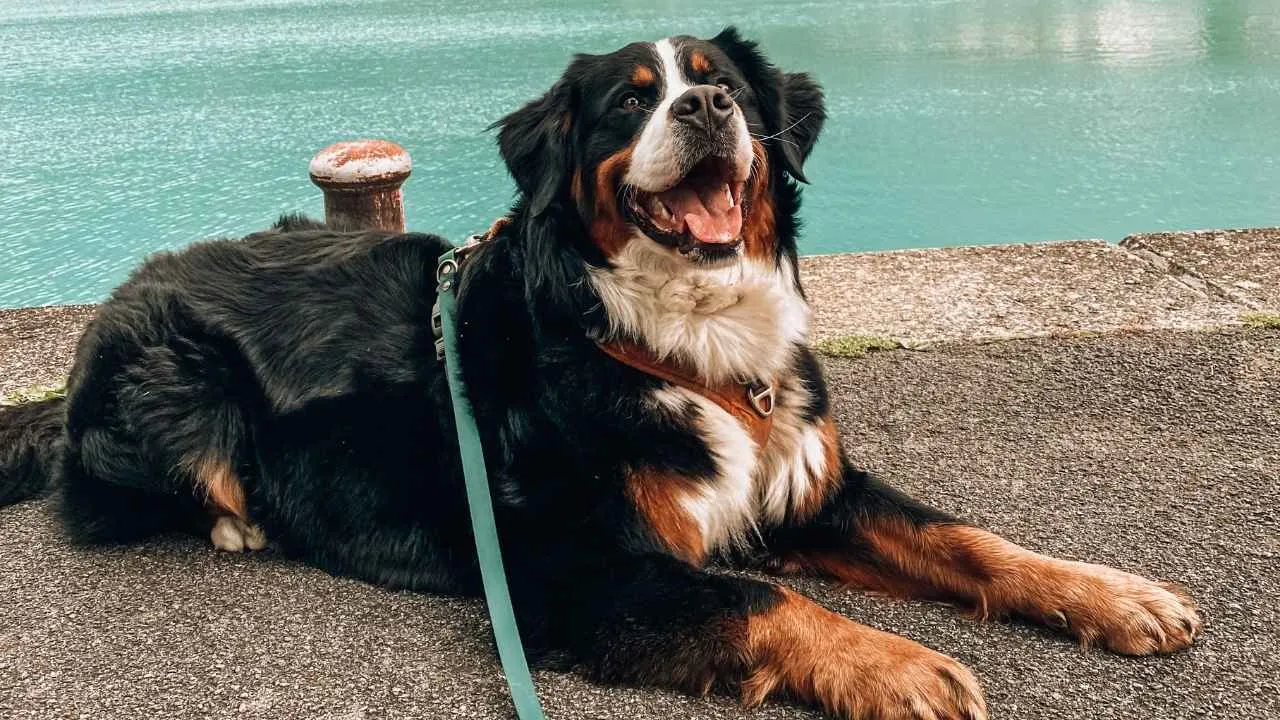
Fluffy, friendly, and full of heart, the Bernese Mountain Dog is basically a living teddy bear with paws. Originally bred as farm dogs in the Swiss Alps, they’re now beloved gentle giants with a nurturing soul.
Their calm, dependable nature makes them ideal companion dogs for those on the autism spectrum. These dogs don’t just exist in your space—they melt into it, offering a constant, comforting presence.
PDSA reveals that Berners excel at offering reassuring pressure, leaning gently or lying close to calm anxiety and soothe stress. They’re not barky or jumpy—they’re your fuzzy emotional anchor.
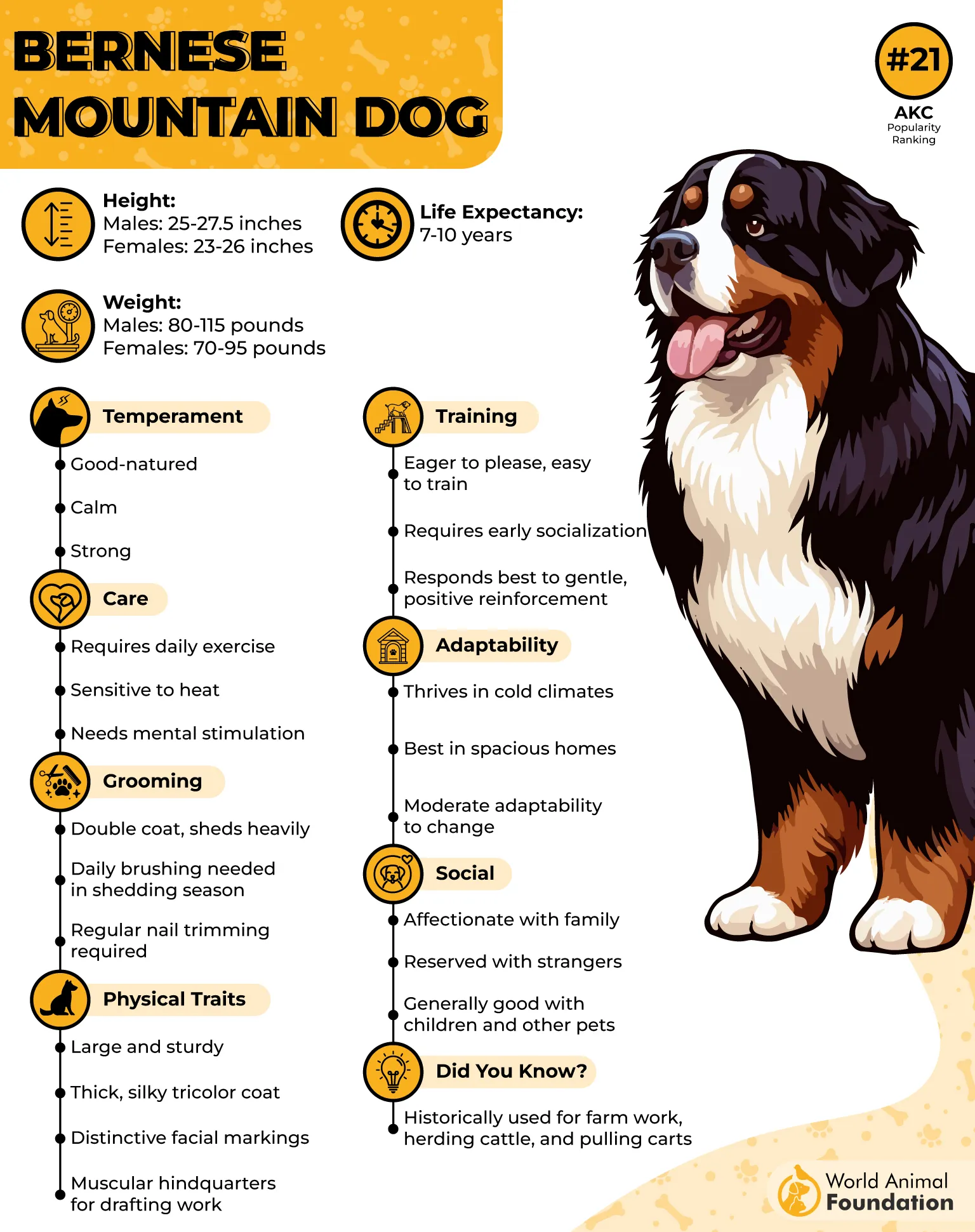
Training is relatively smooth with a Bernese, though patience is key. They’re smart but sensitive, preferring gentle guidance over harsh corrections. A dog trainer familiar with the breed can help them shine.
They require moderate exercise but aren’t hyper. Think scenic strolls, light play, and lots of lounging—perfect for a child who prefers low-key routines.
Their thick coat needs regular grooming, especially during seasonal shedding. But their soulful eyes and steady loyalty make every brushstroke worth it.
With their affectionate nature and sense of calm, they’re often called nanny dogs—and they live up to the title in every warm, whiskery way.
6. Collie
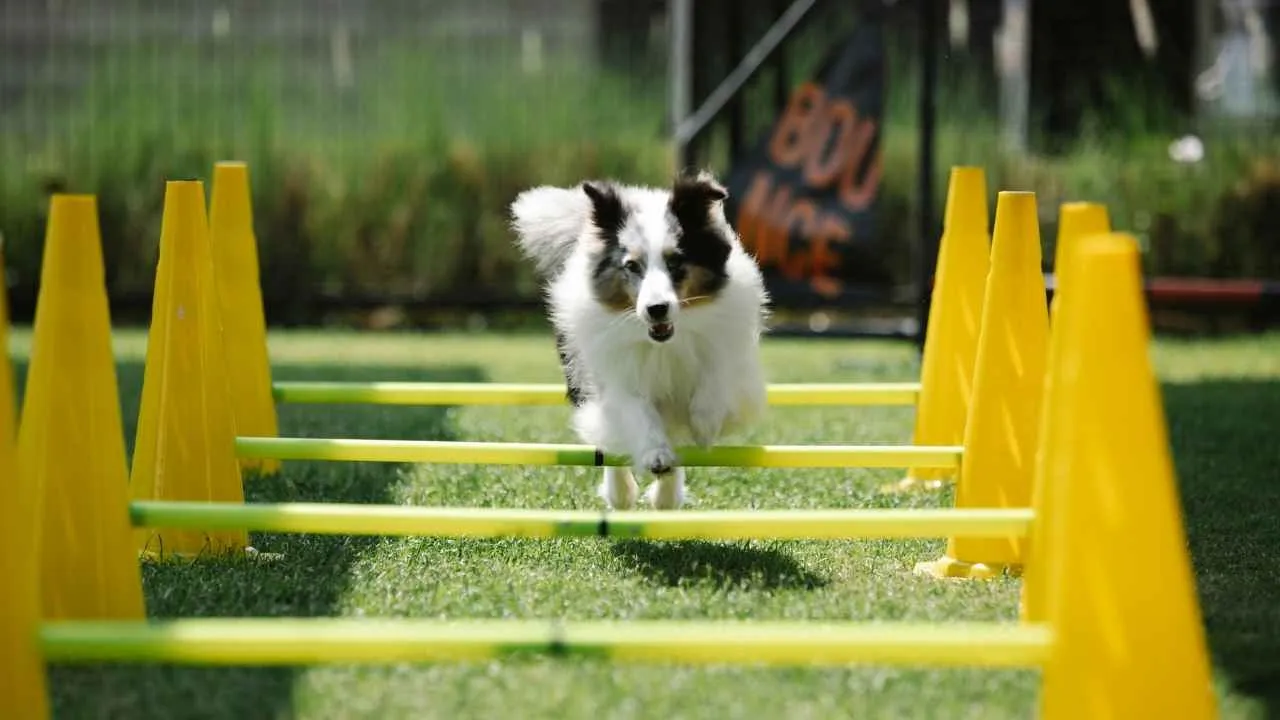
Lassie wasn’t just TV magic—Collies are the real deal. These elegant herders from Scotland are generally good with kids, deeply intuitive, and known for their strong bond with their humans.
What makes them shine for people with autism? They have an uncanny ability to sense emotions and adapt their behavior accordingly. One moment, they’re a playmate. Next, a quiet shadow providing comfort.
Collies have a calm temperament but a sharp mind. They pick up on routines quickly and can learn complex tasks that support social interaction, safety, and daily structure.
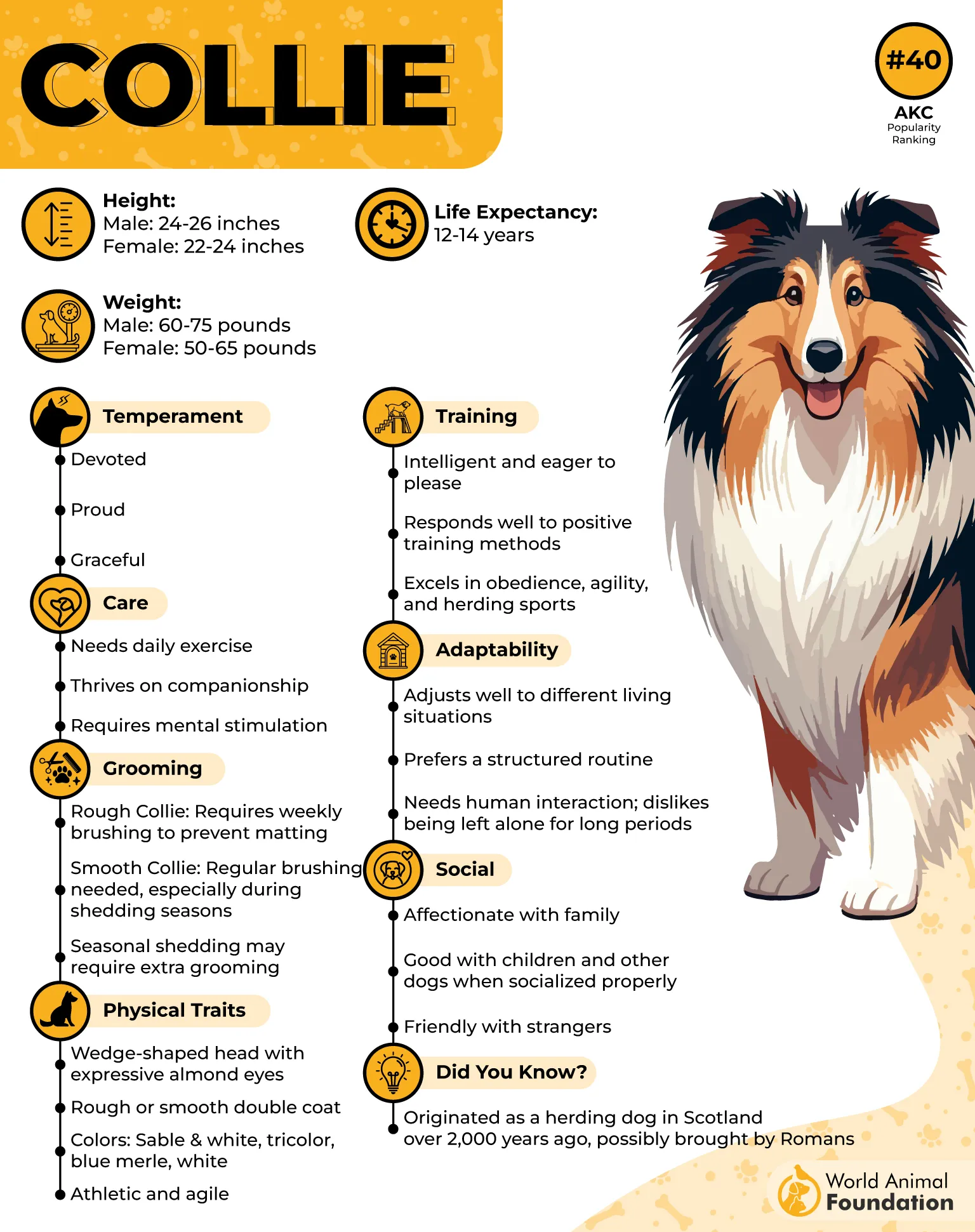
They need moderate exercise and mental stimulation to keep their sharp minds from getting bored. Herding games or simple scent work can be both fun and grounding.
Their long coat does need regular brushing, but grooming costs are manageable if done at home. And the fluff? Ideal for petting during a moment of being overwhelmed.
This breed is also excellent with other animals and gentle around autistic children, making them great for multi-pet households.
Above all, Collies are devoted, mild-mannered, and in tune with their family’s rhythm—a beautiful balance of heart and instinct.
7. Newfoundland Dog
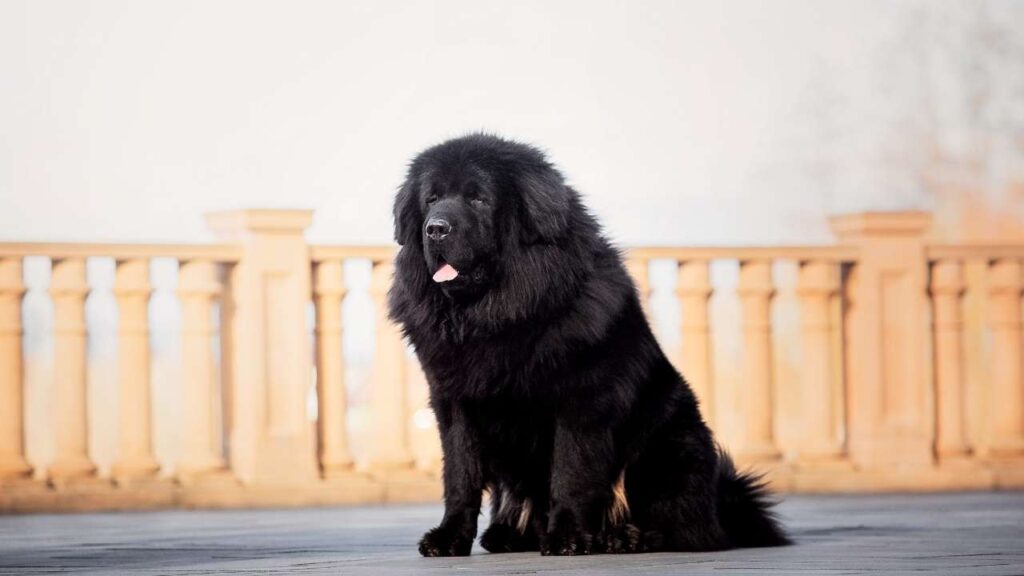
Imagine a marshmallow with muscles—and you’ve got the Newfoundland. Known for their size and sweetness, these gentle giants are legendary for their patience and unconditional love.
Purina adds that bred as working dogs in icy Canadian waters, Newfoundlands now serve as soothing, oversized lap dogs for people with autism. Their quiet demeanor is a grounding force for anyone needing extra calm.
They’re especially effective at relieving pressure and sensory grounding. A Newfie’s slow, deliberate movements and quiet confidence are comforting for those with sound sensitivities or high anxiety.
Despite their size, they’re soft-hearted and sensitive to human emotion. They excel in therapy and emotional support animal roles, especially for those seeking tactile comfort.
Training takes time—they’re not as quick as some other breeds, but their eagerness to please makes up for it. Keep sessions short, sweet, and filled with snacks.
Their thick coat means grooming costs and drool clean-up are part of the package. But those big, soulful eyes? Worth every paper towel.
For families exploring getting a dog who brings comfort, safety, and deep companionship, a Newfoundland is less a pet, more a heart with paws.
Conclusion
Choosing the right autism service dog isn’t just about fluff and tail wags—it’s about finding that perfect four-legged partner who gets you. From task-savvy to tear-snuggly, each breed we covered brings something unique to the table (and your lap).
Whether it’s the brainy Poodle or the cuddle-ready Newfoundland, these service dogs are trained to offer more than comfort—they perform tasks, provide structure, and even help reduce anxiety. Talk about paw-some multitaskers!
Of course, there’s no one-size-fits-all. Some may thrive with a small dog like a toy poodle, while others bond better with a mixed breed or a gentle Cavalier King Charles Spaniel. It’s all about matching with the right individual dog.
Needless to say, many dogs—even a calm Saint Bernard or a watchful Great Pyrenees—can shine with the right extensive training.
So, if you’re thinking about getting your own service dog, talk to a professional trainer and consider your lifestyle, needs, and goals. Don’t rule out other dog breeds—you might be surprised who steals your heart!
Now go ahead—make eye contact with destiny. Your ideal autism support buddy could be just one tail wag away.


